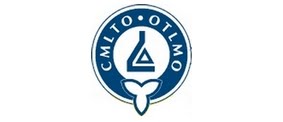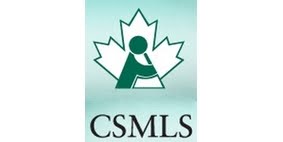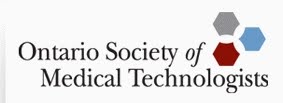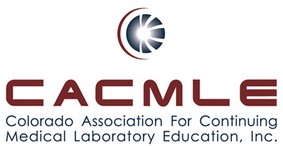Well folks, it is over.
Everything must end, and so must this blog. The fun has ended for ‘Fun With Microbiology (what’s buggin’ you?)’. I was offered a package by my employer and I’ve
decided to take early retirement.
The writing had been on the wall for some time. Hospital operating costs outpace government
funding, leaving most health care institutions financially stressed.
Hospital mergers were the first line of defense –circle
the wagons…there is strength in numbers!
Ours did just that –merging with two other hospitals and pooling their
resources.
The second line of defense was to divest ourselves of
disciplines and tests in order to save even more money. We watched our parasitology lab dismantled
with specimens now sent to the regional Public Health Laboratory. Tuberculosis testing also went to the PHL
with an inevitable increase in turn-around time. Hepatitis testing was sent to the Chemistry
Department – how that saves money escapes me.
The ‘best’ tests were exchanged for ‘good’ tests – Enzyme Immunoassay
tests (EIA) substituted for the more costly Polymerase Chain Reaction (PCR)
molecular testing. Still mycology
remains…but for how long?
The third line of defense was to be attrition of staff. A moratorium on hiring all but the most
essential of employees came into effect.
Many positions now offered would be part-time or contract in order to
retain flexibility with the additional advantage of not having to pay for
benefits.
Yet I wonder how much money is saved when inadequately
trained part-timers work in several institutions to make ends meet and confuse
one for the other. Tests often arrive
improperly collected. Incessant phone
calls interrupt begging information as to how to do their job. Work load increased while staff
decreased. Perhaps quality may suffer
while overworked staff find vacation requests frequently denied due to workload. Moral plummets!
The fourth line of financial defense? Well, we all knew it the day “merger” was
announced that staff were caught in the cross-hairs. Employees are the most expensive asset of any
hospital. MRIs are bought and paid for
once. Laboratory instrumentation is
often provided free of charge as long as the consumables (test kits) for the
instrument continue to be purchased. But
staff, they keep earning their salary year after year, after year.
…and so for staff such as myself, longevity at the
institution became a disadvantage. My
earnings were at the top of the scale and I was entitled to the most vacation
time. I could be replaced by an entry
level technologist. Offered a ‘package’
as an incentive, I knew that I could do no better. I was burnt out anyways.
After 37 years in the healthcare profession, I’m
done. I will miss the pure science
tremendously, but I have come to hate the business!
I think I have also earned the right to sound off just a
little; (nobody reads this anyways)
The Regulatory Collage:
When I first started, we had no government regulation, no
collage oversight. We had pride in our
knowledge and ability and I have no doubt we did excellent work. The regulatory Collage now looms overhead and
carries a big stick to whack any member that fails to comply with its rules and
regulations. The dreaded ‘Audit’ to see
if you have read enough papers, attended
enough seminars, taken enough courses to satisfy their authority. Yet I've seen no evidence that those who know
how to ‘jump through the hoops’ always become better and more knowledgeable
technologists. It has become a game.
The ‘Collage’ was first sold to us back in 1993 as an
organization that would promote our interests and standing as healthcare
professionals. In reality, it is nothing
more than a regulatory and disciplinary body hovering over our profession where
my colleagues and I pay to protect the public from ourselves, the medical
technologists. Membership fees increase
almost yearly.
Continuing Education:
The cost of many courses offered by various education
institutes exceed what I’m willing to pay on my income. Crying poverty, the days have long passed
when my employer paid for or contributed to my education which ultimately
benefits them. These days the medical
technologist must absorb the cost of further education with little or no
possibility that the effort would be reflected in their income or advance their
career. While we remain eager to
increase our knowledge, these days we pay…our employer benefits.
The Workplace:
How the workplace has changed! The days are gone when microbiology labs were
well stocked with a variety of media and individual chemicals. When an organism would not identify by
standard methods, text books were consulted, dry media was reconstituted and
QC’d, individual tests were added as necessary.
We had the luxury of a fully stocked media room complete with an
autoclave. Every day, every organism was an ongoing learning experience –and we
were given the freedom to apply our knowledge; to learn and explore.
These days, media is purchased from an outside
supplier. Only the most basic supplies
and test kits are stocked. If an
organism is not identified immediately by laboratory instrumentation, an
alternative test may be available, or just as likely, the organism is packaged
to be sent to the regional lab for further testing. The media room went long ago as did the
autoclave. Even sterile distilled water
is now purchased.
I often felt like ‘Lucy on the Chocolate conveyor belt
line’, where specimens pass by at a furious rate as you desperately do you best
to keep up without making errors.
Standard Operating Procedures (SOPs) and Algorithms rule
the lab. Individual thinking has been
replaced by uniform conformity.
Reflex Orders:
In the past, technologists at our institution could
initiate ‘reflex orders’. If one test
did not directly give a useful result but strongly provided evidence for
additional or alternative tests, we could personally order that test and
fulfill it. The answer might be on the
doctor’s desk before he could ask the question.
‘Ghost cells’ in a sputum or pleural fluid may suggest
acid fast bacilli. Previously I could
order tests for appropriate staining and culture. No longer.
A throat culture
specifically intended for the detection of group ‘A’ Streptococci revealed that a child had a pure growth of Streptococcus pneumoniae, however my
instruction was not to report it as “the test is only for Group ‘A’
Streptococci. No other respiratory
cultures were ordered for the child!
SOPs rule the day, and I had no SOP for that situation. Where once I could report this directly or order
the appropriate test, now a game of phone tag ensues, trying to get a verbal
message to someone who would be willing and able to act on my word. Where once we were professional enough to act
on our results and place ‘reflex orders’ as necessary, these days only the
physician can initiate the order.
Quality Control:
If you were to find yourself in a hospital in need of
serious medical attention, you would wish the institution adhered to well
established rules and regulations to ensure utmost quality. Hospitals are assessed periodically to ensure
they meet established standards. Hospital
accreditation requires inspection by assessors who follow their own SOPs and
algorithms. No one denies that Quality
Control (QC) is important.
In the laboratory, everything must be
“controlled”. At times it seems that the
more graphs, charts, check-marks and signatures you can produce…the more
professional you believe you are! Of
course quality control is important; however make it relevant, concise and
applicable. At times one loses sight of
reality in the attempt to jump through the hoops and satisfy the inspectors and
nonsense is the result. Examples follow;
Nonsense!
·
To QC LactoPhenol Cotton Blue Stain our SOP
directs the technologist to stain a Penicillium
specimen with the LPCB for the positive control and with saline for the
negative control. Never in my career has
putting this blue dye on a fungus not turned it blue. As for the negative control, what am I to
observe to determine if this LPCB passes QC?
That saline doesn’t spontaneously turn the fungus blue? I have never obtained an answer, yet we are
directed to do the test.
·
To QC Germ Tube Media our SOP instructs us to
place Candida albicans in an aliquot
of horse serum as the positive control and Candida
krusei in another aliquot as the negative control. Again, I ask “what am I to observe in the QC
aliquot containing Candida krusei to
determine if the horse serum passes QC?”
This species does not produce germ tubes so it shouldn’t! If it does, does the QC fail? Or does it just mean the organism we
thought was C.krusei, isn’t. C.albicans
is both positive and negative control!
In horse serum it passes if it produces germ tubes and fails if it
doesn’t. Done! No, follow those SOPs and Algorithms – don’t
deviate, don’t think! What a waste of
effort, time and supplies.
Another irritant is the use of commercial (read
expensive) ‘single use’ vial or dispenser of reagents. Identical
lot numbers stored in an identical manner are QC’d each morning for use that
day. That single vial or dispenser of
reagent is for use, not per person, but for the entire lab. Shouts of “who’s got the catalase” or
“anybody have the spot indole” as we leave our station to retrieve the reagent. I try to imagine a construction site where
one hammer or one drill is QC’d each work day followed thereafter by
construction workers stumbling over each other as they retrieve the single tool
they find themselves in need of. Early
in my career we took a trip to the hospital pharmacy to obtain a bottle of ‘off
the shelf’ (read inexpensive) hydrogen peroxide and made up spot indole from
‘scratch’ in the media room. We QC’d
each reagent and once satisfied of their activity they were stored
appropriately. Technologists would obtain
an individual aliquot for daily use and were observant to any deterioration of
activity.
Price has increased while technologist’s involvement has
decreased.
Technologist’s
Changing Role:
Where once my role as a technologist was primarily to
work on clinical specimens, diagnose infectious illnesses and liaise with other
medical personnel, over the years the scope of required duties has changes
significantly. In addition to the
duties listed above, we have now stock supplies; act as file clerks, answer
continuously interrupting telephones –duties more akin to secretarial
work. While I do not feel above this
sort of work and am happy to help where and when needed, I feel that this work,
if part of my job description, is a waste of my education and the taxpayer’s
dollar. Changing roles and QC madness
even has technologists checking the available paper in copy machines on a daily
basis, and then signing off as having done so.
I would be surprised if the lowliest clerk in some law firm would have
such a responsibility enforced. When the
paper runs out, you’ll know – and you’ll add paper…
Loss of Skills:
As a cost saving measure, our hospital as many others,
are divesting themselves of particular microbiological laboratory disciplines
such as Parasitology, Mycology and Tuberculosis testing. These are particularly challenging skills to
master and achieve competence. I was
particularly lucky to work in hospitals offering all these disciplines
throughout my career. Increasingly these
tests are now being sent to a central laboratory for testing. Most new graduates entering clinical
microbiology will no longer have exposure to these disciplines after their
studies. The disciplines will be lost to
all but those who work in the central reference laboratory or possibly huge
‘downtown’ hospitals. The ‘well rounded’
technologist will be a thing of the past.
In the end, the work must be done, whether the hospital lab or the
central reference lab and here in Canada, the taxpayer pays for both. How that saves money is beyond my
understanding.
Going Green:
I suppose that getting rid of the hazardous Bunsen burner
which used that nasty fossil fuel, natural gas, in exchange for single use,
disposable plastic loops that now fill the hazardous waste bin, could be argued as having ‘gone green’.
Cultivation of a Poisonous Work Environment:
My employer adopted an new attitude towards its employees whereas longevity no longer has any bearing on advancement or remuneration (pay increases). There is a point to be made that those who work harder and contribute more should receive the greatest rewards. The downfall is that the evaluation can be quite subjective with those "sucking up" to the boss may get preferential treatment.
One can volunteer for every project and take on every task yet not produce quality work while others in the background may do more than their share without any fanfare. Every workplace has one of those loud, boisterous, "look at me" go-getters that never misses an opportunity to impress the boss.
Computers now log every key-stroke and every error. We now live in fear of how our human errors will be tabulated and now come back to haunt us. My concern is that human nature may now try to hide errors rather than correct them which may be detrimental to the patient. I can still hear my first manager's words concerning errors; "bring any errors to our attention as our only concern is to correct, not punish". My how the attitude has changed!
To further poison the atmosphere -in unmistakable terms we were instructed that we must keep an eye on each other and turn in anyone who arrives late, or leaves early. Those that take a longer lunch or surf the internet for something other than work - we must run to the boss and squeal! While life never runs on such a strict time clock, we are now obligated to turn in our colleagues and co-workers. Working through lunch on a busy day goes unnoticed while those taking five minutes longer when the workload allows should be turned in.
It is a very clever concept. It is a shift from 'the employees against the employer' to 'the employees against each other'. We can no longer be upset at our employer if we don't get a raise - we should blame our colleagues! What a poisonous atmosphere!
Those that turn in fellow co-workers and colleagues should realize that
they will be shunned and ostracized should they be recognized as the
source of the betrayal.
What does it do for the health and well being of the medical technologist? Already in a stressful profession where the workload is ever increasing, we must now "walk on egg-shells" in fear of making any errors and look over our shoulder to see if a colleague is monitoring our work ethics.
The hospital has hired, and proudly promotes their Employee Assistance Program. However this treats stress and burnout at the back end while I feel they should prevent it from every happening in the first place.
For me personally, I realized that Medical Laboratory Technology had become a Job and was no longer a Profession. As such, I knew it was time for me to go...
Final Thoughts:
So, as you can see, many changes have taken place since I
started as a medical technologist some 37 years ago. Some changes for the good, some questionable,
some of it just plain puzzling.
For the most part, I’ve enjoyed the profession though I
find it would be hard to recommend it to anyone these days. The workload, responsibility and accompanying
stress is not for all. It can be argued
that the medical laboratory technologist is probably at the bottom of the
health care professional hierarchy.
Since we work primarily within the laboratory and have no direct patient
contact, the medical technologist usually finds themselves at both the bottom
of the pay scale and in professional respect.
There is very little opportunity or positions available for advancement
within the field. Most move on to
administrative duties, if that suits their life’s career path.
So that is it.
I’ve said my peace. And once
again I’ll say, I will miss the pure science tremendously, but not the
healthcare business.
…after one final post, off to enjoy my retirement!!
August 15th, 2016
As I had predicted, a former colleague informed me that the hospital laboratory had decided to divest itself of the Mycology Laboratory. All specimens requiring fungal culture will be sent directly to the Provincial Laboratory. The hospital laboratory I worked for physically merged with another right after my retirement. While our laboratory had staff trained in mycology, most of the staff in the merging lab had no experience in culturing fungi. By divesting itself of the mycology laboratory, the hospital lab saved money by having the Provincial Laboratory perform the culture and identification as well as not having to train incoming staff in the discipline.
Had I stayed on, I probably would have been unable to continue this blog. This blog was about photography and while microbiology in itself is fascinating, fungi were the most photogenic organisms. Mycology made my days enjoyable and rewarding. Knowing this, I have no regrets in having taken my retirement.
My former hospital laboratory now strictly performs bacterial microbiology with a select number of rapid serological screens. The day of the well rounded, all-inclusive microbiological hospital lab are probably gone unless, perhaps, in some very large city laboratory. Sad...
I had considered purchasing my own personal microscope with colleagues at other facilities providing fixed slides for study, but it is a considerable expense for uncertain use and without photographs of the culture plates, I decided to let that idea die.
* * *


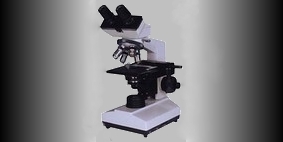.jpg)
